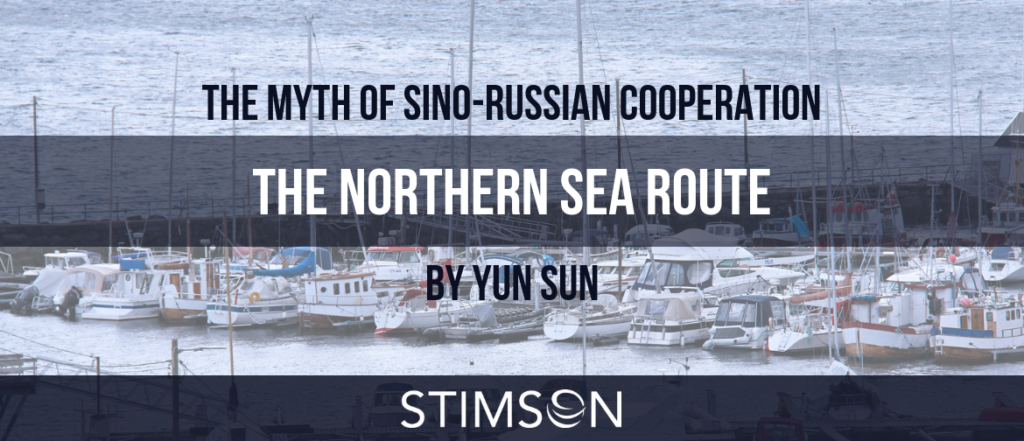Stimson’s East Asia Program is proud to announce the publication of Yun Sun’s second monograph on China and the Arctic, The Northern Sea Route: The Myth of Sino-Russian Cooperation. Since 2017, a series of events have raised optimism about the potential for Sino-Russian cooperation in the Arctic region, including unilateral and bilateral statements between Beijing and Moscow about their shared vision for and commitment to joint development of the Arctic energy resources and shipping lane. China’s economic interests in natural resources extractions and alternative transportation routes largely align with Russia’s stated goals to revitalize its Arctic territory. After China formally launched its “Polar Silk Road” (PSR) at the beginning of 2018, much attention has been placed on Sino-Russian cooperation in the development of the Northern Sea Route, Russia’s traditional Arctic shipping route. The Sino-Russian cooperation on the Arctic seems have become the upcoming great new chapter in their comprehensive strategic coordinative relations.
Despite the rhetorical enthusiasm from the two governments, concrete, substantive joint projects on the Northern Sea Route are lacking, especially in key areas such as infrastructure development. A careful examination of Chinese views on joint development of the Northern Sea Route reveals divergent interests, conflicting calculations and vastly different cost-benefit analyses. From the Chinese perspective, the joint development of the Northern Sea Route is a Russian proposal to which China reacted primarily out of strategic and political considerations rather than practical economic ones. While China is in principle interested in the Northern Sea Route, the potential and practicality of this alternative transportation route remains tentative and yet to be realized. In this sense, expectations and assessments of the impact of Sino-Russian cooperation specifically on the Northern Sea Route should be focused on moderate, concrete plans rather than glorified rhetoric.
Although Chinese researchers are fond of optimistically discussing the potential for Sino-Russian cooperation on the Northern Sea Route, they have been unable to reach an optimistic conclusion for its viability, feasibility and practicality. China and Russia have identified their converging interests in such cooperation. However, their diverging interests, especially over what constitutes mutually beneficial compromises, will be the biggest obstacle to future progress. China’s view of the economic practicality of the Northern Sea Route remains a lofty future ambition that is steeped in hopes of the project’s potential. In the best-case scenario, few Chinese experts see the Northern Sea Route as a viable substitute/alternative to traditional shipping routes. Instead, the Northern Sea Route is seen primarily as a potential supplement. The unfavorable assessment of the economic practicality of the Northern Sea Route underscores the fact that there has been more discussion about development than actual projects on the ground.
China has demonstrated greater interest in other areas of infrastructure cooperation, such as on the Primorye International Transportation Corridor and energy development projects. However, interest regarding joint development of the Northern Sea Route has been markedly less impressive or present. China’s apparent enthusiasm on Northern Sea Route cooperation with Russia is motivated primarily by political and strategic considerations. Cooperation helps to pave China’s entry into the otherwise relatively exclusive Arctic region and affords China an advantaged position and priority in the projects for which Russia is accepting/seeking international cooperation. Russia’s options for other international partners might expand after international sanctions are lifted and/or if the United States identifies China as the biggest existential threat and Russia as a partner in the Sino-US-Russia strategic triangle. However, such hypotheticals do not appear to be coming to fruition anytime soon.
This policy report is a part of the “Great Power and Arctic Politics” Project led by the Norwegian Institute of International Affairs and made possible by the support of the Royal Norwegian Ministry of Foreign Affairs.
Download to view the full report.

